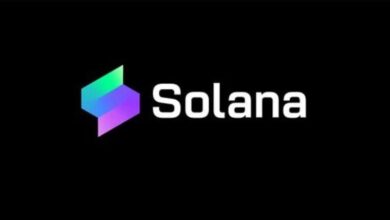BlocRecs Using Blockchain to reduce University Degree Frauds

Lebanon as many countries around the world faces various scandals when it comes to the issuing of university degrees. In today’s world where companies are looking to find the right talent with the appropriate skill-set the issue becomes even more pressing. The examples of degree fraud are many. In 2018 the Ministry of Education in Lebanon fined three universities with one recommendation to close one of them because there were allegations that these universities received cash for degrees. This month the General Director of higher education at the Lebanese Ministry of Education was arrested for allegedly selling fake university degrees involving several universities.
Here is where a startup like BlocRecs comes in. Utilizing the features of security and immutability inherent in the blockchain, BlocRecs can help to decrease the opportunity for fraudulent degrees. The company was created by Hanadi Al Ahmadieh, Founder and Chief Strategy Officer and Amir AbdelBaki, Chief Operations Officer and Rawane Made Chief Technology Officer. It is a Lebanese blockchain startup that focuses on education with an aim to fight degree fraud. BlocRecs can be used by both universities and employers. Universities can issue their student records on the blockchain and employers can then verify information utilizing the information available.
UNLOCK met with Mr. Amir AbdelBaki to discuss their platform and efforts being done so far. BlocRec’s solution is built on the Ethereum platform and is already available for universities and employers to use. As Amir explains, “We developed BlocRecs on Ethereum and won first prize in the Consensys Hackathon. We already have a working product and our first client. ESA Business School in Lebanon is working on a pilot project to put their Masters, MBA, and BBA degrees on the blockchain. Employers can then validate these through their website.” Amir adds, “We are offering this through a blockchain as a service platform so universities don’t need to make a huge investment but rather pay as a subscription per degree issued.”
He adds, “By placing degrees on the blockchain we not only improve the process by making it simpler and more transparent but we also ensure that no one can play or change the records of the degrees once they are on the blockchain. By time stamping degrees we ensure that a student actually attended the required years as well as received a degree.”
In the upcoming weeks BlocRecs will be signing an MOU (Memorandum of Understanding) with the research entity in KSA that works on security projects. Amir states, “We will work together with the research center on building security blockchain-based solutions for academic institutions.”
While many universities have shown interest, other players such as the Ministry of Education in Lebanon and even the Ministry of Foreign affairs will have to come on board. As AbdelBaki explains, “ Today for degrees to be certified they go through a lengthy tedious process of getting signature from the Ministry of Education, as well as the Ministry of Foreign Affairs especially if a job applicant will be working outside of Lebanon utilizing a blockchain platform such as BlocRecs this can be done in mere seconds and from anywhere.”





